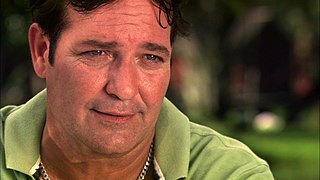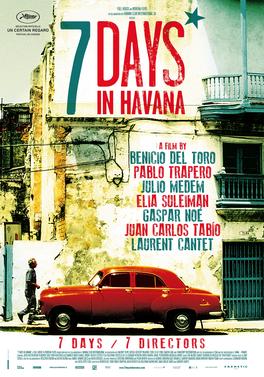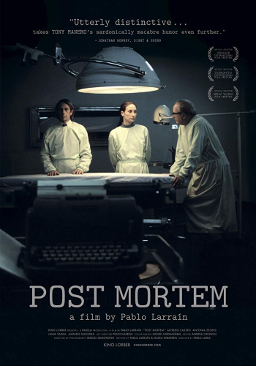Miguel Coyula Aquino is a Cuban filmmaker and writer. Working with a multi-disciplinary approach, his films usually take several years to complete. He has been described by critics as a virtuoso and an innovator. The multi-layered narratives of his films often deal with alienation, they contain graphic depictions of sexuality, and frontal criticism of society and politicians. The controversial nature of his work has resulted in the banning of his work in Cuba, although it has also suffered censorship in Argentina, Belarus, Morocco, and Beirut. The press usually refers to him as the enfant terrible of Cuban Cinema.

Viva Cuba is a 2005 Cuban tragicomedy film, directed and co-written by Juan Carlos Cremata, with Manolito Rodriguez as the other co-writer. It was the first Cuban film to be awarded the ‘Grand Prix Écrans Juniors’ for children's cinema at the 2005 Cannes Film Festival.
Oscuros Rinocerontes Enjaulados is a 1990 Cuban short film.
Video de familia is an independent Cuban film made in 2001. It tells the story of a broken Cuban family with a homosexual son which has emigrated to the US. The film is composed of 5 shots of 10 minutes each, in the form of Video Letters. The film has won a number of awards in Cuba.

The Havana Film Festival is a Cuban festival that focuses on the promotion of Latin American filmmakers. It is also known in Spanish as Festival Internacional del Nuevo Cine Latinoamericano de La Habana, and in English as International Festival of New Latin American Cinema of Havana. It takes place every year during December in the city of Havana, Cuba.

Benito Zambrano, is an awarded Spanish screenwriter and film director. His film Habana Blues was screened in the Un Certain Regard section at the 2005 Cannes Film Festival. He studied at Escuela Internacional de Cine y Television in San Antonio de Los Baños, Cuba.
Humberto Jesús Castro García is a Cuban painter.
Carlos Julio Villar Aleman, pen name Carlucho, is a self-taught creator of humorous drawings, known as "Cuba's foremost caricaturist".
Juan Carlos Tabío was a Cuban film director and screenwriter. His film Strawberry and Chocolate (1994), which he co-directed with Tomás Gutiérrez Alea, won a Silver Bear - Special Jury Prize at the 44th Berlin International Film Festival. He was also nominated for the Academy Award for Best Foreign Language Film. He collaborated with director and close friend Tomás Gutiérrez Alea and actors Jorge Perugorría, Vladimir Cruz and Mirta Ibarra in several films.

Jorge Perugorría Rodríguez is a Cuban actor, film director and painter. He is well known for his part as Diego in Strawberry and Chocolate (original title in Spanish Fresa y chocolate. He recently acted in Steven Soderbergh's Che, with Benicio del Toro and in the original Netflix series Four Seasons in Havana. He lives in Santa Fe, a neighborhood on the outskirts of Havana, with his wife Elsa Maria Fuentes de La Paz and their four children.
Descemer Bueno is a Cuban singer, songwriter, and record producer. His first professional gigs were playing bass with Cuban troubadour Santiago Feliú.

7 Days in Havana is a 2012 Spanish-language anthology film. Set during a week in the Cuban capital Havana, the film features one segment for each day, each segment directed by a different filmmaker. The directors are Julio Medem, Laurent Cantet, Juan Carlos Tabío, Benicio del Toro, Gaspar Noé, Pablo Trapero and Elia Suleiman. The screenplay was written by the Cuban novelist Leonardo Padura Fuentes. The film is a co-production of companies in Spain, France and Cuba. It was shot on location in Havana.

Vladimir Cruz Marrero is a Cuban actor, screenwriter, playwright, film and theatre director. He is perhaps best known for his role in the film Strawberry and Chocolate (1994).

Post Mortem is a 2010 Chilean drama film directed by Pablo Larraín and set during the 1973 military coup that overthrew former President Salvador Allende, inaugurating the 17-year dictatorship of Augusto Pinochet. The film competed in the 67th Venice International Film Festival, Antofagasta Film Festival, Havana Film Festival and the Guadalajara International Film Festival. The film's main character Mario Cornejo is based on a real person with the same name.

Leslie Calvo is a Spanish film producer and director. He was an executive producer of musical films by Spanish director Carlos Saura.

Ernesto Daranas Serrano is a Cuban filmmaker. Daranas' three feature films have had unprecedented success in Cuba and were submitted to the Academy Award for Best International Feature Film. Daranas is a Latin Grammy nominee for Best Long Form Music Video and a recipient of the King of Spain Award. His filmography includes Sergio & Sergei (2017), starring Ron Perlman, and Behavior, often considered the greatest Cuban film of the 21st century.
The Havana Film Festival New York (HFFNY) is a film festival, based in New York City, that screens cinema from across Latin America with a special focus on Cuba and its film industry. It is a project of The American Friends of the Ludwig Foundation of Cuba, a 501(c)(3) tax-exempt organization with the mission of building cultural bridges between the United States and Cuba through arts projects.

Habaneceres is a Cuban documentary film, directed in 2001 by Luis Leonel León. The documentary received awards at film festivals and was selected by the Cuban Film Press Association, affiliated with the International Federation of Film Press (FIPRESCI), as the best film of 2001 in its genre.









